As new parents get to know their baby and work to do what’s best for them, they are processing information coming at them from all directions- well-intentioned family and friends, healthcare providers, parenting blogs, social media influencers, and even perfect strangers. This guide is designed to help parents identify reliable sources of information related to sleep, nutrition, tummy time, developmental milestones, safety, immunizations, and more.
Parenting Books
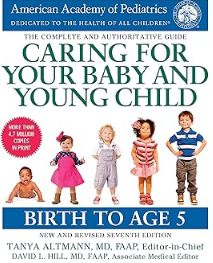
Caring for Your Baby and Young Child, Edited by Tanya Altmann & David L. Hill
In one of the most comprehensive parenting books available, experts from the American Academy of Pediatrics (AAP) provide information about a wide variety of parenting topics pertaining to children from birth through age five. In this book, you will find encyclopedia style entries on everything from sleep, to developmental milestones, to childproofing your home, potty training, and more.
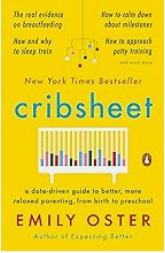
In this book, author and economist Emily Oster provides families with data-supported information on everything from baby sleep, to potty training, to how to respond to toddler tantrums. Rather than promoting any one approach to parenting, Oster aims to support parents as they seek to cut through the overwhelming amounts of parenting information they encounter, and learn how to make the decisions that will work best for their own family.
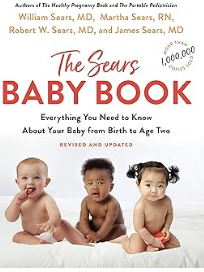
The Sears Baby Book: Everything You Need to Know About Your Baby from Birth to Age Two
This is the main book in the Sears Parenting Library, a collection of books that provides not only general parenting information, but also provides a more in-depth look at some specific parenting concerns, such as allergies, vaccines, and sleep. The Sears Baby Book offers information about all areas of your baby’s health and wellness beginning as you prepare for your baby’s arrival, and then through the first two years of life. There are informative illustrations to help parents visualize things like specific types of baby holds and what to look for to see if your baby is achieving developmental milestones. The Sears are a pediatrician and registered nurse, who have written this book both from their professional experience, but also from their experience as parents.
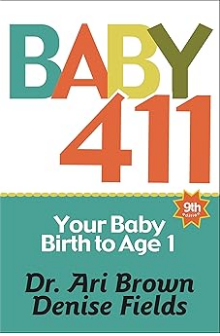
Baby 411: Your Baby, Birth to Age 1
The question and answer format of this book makes it a great resource for parents who are seeking information about a very specific question. In addition to the Q&A approach, throughout the text, readers will find portions of text labeled “Red Flag,” indicating that medical evaluation or intervention may be necessary, or “Reality Check,” helping to normalize concerns that parents may not realize impact many children. The book also includes very practical tools, such as sample baby schedules, developmental milestone check lists, sample diet for babies starting solids, tips for at home treatment of common issues such as diaper rash, and more.
Expecting Parents
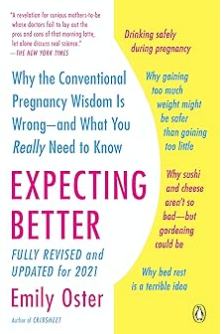
Expecting Better by Emily Oster
In this book, Oster takes an evidence-based approach to debunking myths and explaining the rationale behind the various recommendations aimed at expecting mothers. Often, these guidelines are just accepted as conventional wisdom, but Oster has done the work of digging into the science behind the advice, and empowering pregnant individuals to make the choice that works best for them. In a non-judgmental way, Oster tackles topics such as caffeine and alcohol consumption during pregnancy, the typical dietary restrictions we hear about (i.e. sushi, cold cuts), and the guidance around genetic testing in pregnancy.
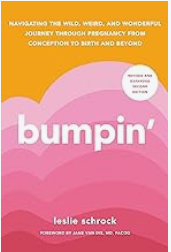
Bumpin’: The Modern Guide to Pregnancy by Leslie Schrock
In this book, Leslie Schrock offers practical advice for expecting parents related to conception, pregnancy, labor, and the first few months of their baby’s life. This book contains a wealth of information both for the pregnant parent, as well as their partner, with a comprehensive overview of what to expect during each trimester, what to consider when developing a birth plan, and how to navigate parental leave and returning to the workforce as a new parent. The book also includes tips on budgeting for a new baby, what to include on a baby registry, and checklists for what to bring to the hospital when your baby arrives.
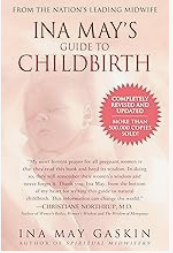
Ina May’s Guide to Childbirth by Ina May Gaskin
This book, while a bit dated, offers readers information from outside of the Western medicine lens which dominates much of the literature geared toward expecting parents. The author is a midwife, who draws up on her professional experience to offer readers wisdom as they prepare for labor. The book focuses on alternative pain reduction and management for expecting parents who wish to experience an unmedicated birth. The book focuses on clarifying one’s goals for childbirth, and coaches readers on how to communicate with healthcare providers.
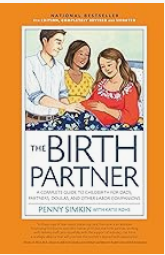
In this book, Simkin provides those who are partners or support people to pregnant individuals with advice about preparing for baby, supporting your partner during labor, newborn care, and how to support your partner in the early postpartum days. Much of the book reads like a labor manual, explaining each stage of the laboring process, and what forms of support might be offered to the laboring parent. Simkin offers non-judgmental information that can new parents as they make decisions about their birth plan, pain management during labor, and feeding in the early days of their baby’s life.
Feeding Your Baby

The Fed Is Best Foundation provides families with up to date information and resources related to safe infant feeding using human milk, infant formula, or a combination of the two. In addition to proving families with access to feeding guidelines and protocols based on scientific research, the organization advocates for the prioritization of the mental health of birthing parents, and supports families as they make decisions about the feeding option that will work best for their family. The organization takes a shame-free approach to infant feeding, and focuses specifically on feeding success in the days immediately following an infant’s birth. The co-founders of the organization released a book entitled Fed is Best in 2024.
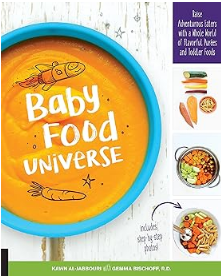
This book provides guidance to parents who are wishing to take more of a traditional approach to starting solids, beginning with purees. The book contains over 100 illustrated recipes of mostly fruit and vegetable purees, as well as some more complex combinations to try as your baby becomes more used to solid foods. The book also provides guidance on introducing your toddler’s first finger foods, as well as additional recipes.
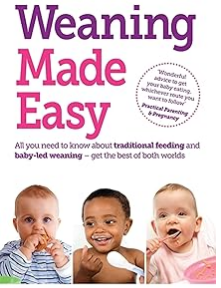
Authored by an experienced nutritionist, this book explains both traditional weaning and baby-led weaning, and will help parents take what works from each practice in order to make informed decisions for their own babies. Conway provides practical guidance on how to introduce specific foods, the best foods for early introduction (and which foods to avoid at first), as well as meal plans and recipes. Given the common concerns about over feeding when using a spoon feeding method, and underfeeding when trying baby-led weaning, Conway provides helpful information to ensure your baby is receiving the right amount of food now matter how you choose to feed.
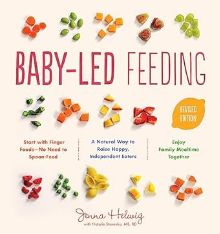
This book provides an overview of the baby-led weaning approach to starting solid food. The author explains how this approach to eating can help your baby develop fine motor skills, and establish lifelong healthy eating habits. This illustrated book includes over 100 recipes for families to try when introducing their little one to solid foods, as well as health and safety information about concerns such as nutrition and allergen introduction.
Baby Sleep
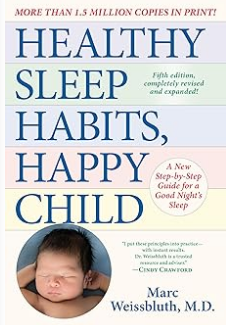
This book, authored by a pediatrician, offers new parents advice on how to use your baby’s natural sleep cycles to incorporate healthy sleep routines and habits. Weissbluth offers information about implementing bedtime routines, recognizing your baby’s drowsy cues, and the sleep habits of different cultures around the world. The author takes a non-judgmental approach to sleep training, and focuses on providing information in a way that is succinct and accessible to tired new parents.
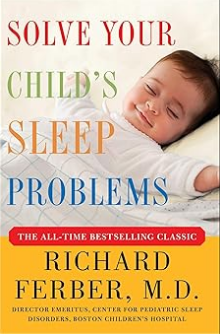
Solve Your Child’s Sleep Problems by Richard Ferber
Richard Ferber is considered by some to the nation’s leading authority on children’s sleep. This is the revised and updated version of Ferber’s classic work and includes information on the Ferber sleep training method, also referred to as the Cry It Out (CIO) method. The book provides tips for troubleshooting common sleep issues such as babies who have a hard time falling asleep, who wake up in the middle of the night, or who experience more severe sleep issues such as night terrors. This book will offer information about your infant’s sleep, but will also be a valuable sleep resource throughout their childhood.
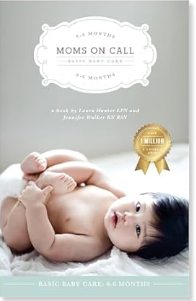
This book provides information from pediatric nurses covering a variety of new parenting topics, but with a focus on improving your baby’s sleep using the Moms on Call Sleep System. This system focuses on promoting healthy growth using routines that match up with your baby’s natural sleep rhythms. This book will help you to develop and implement sleep routines throughout the first six months of your baby’s life. The author has also developed book that discuss your baby’s sleep from 6-15 months, as well as the toddler years.
Developmental Milestones
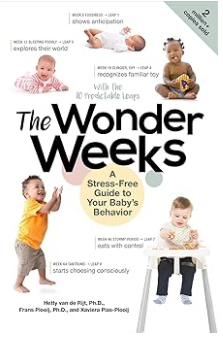
The authors of this book approach child development through the lens of “developmental leaps,” in which they suggest there are predictable phases of behavior changes in babies, and provides guidance for how you can best support your little one during the first 20 months of their development. The book includes a schedule of when leaps typically take place, a description of behaviors a parent might expect during that time, how leaps impact baby’s sleep, and helpful tips for parents who are feeling discouraged during difficult moments. If you find the book helpful, you may benefit from visiting the Wonder Weeks website to download the book’s companion app.
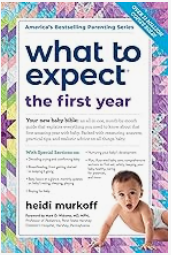
What to Expect: The First Year by Heidi Eisenberg Murkoff
In this book, Heidi Murkoff, author of the best-selling “What to Expect” pregnancy and parenting series, offers new parents information about baby’s different timelines for everything from sleeping, to the most appropriate toys for each developmental stage, to feeding at different stages (from breastfeeding and formula to starting solids). Murkoff also includes nonjudgmental information about different parenting approaches that are at odds with each other. The author’s inclusion of different parenting trends such as attachment parenting, sleep training, early potty training, baby-led weaning, and more will empower you to find what works best for your family.
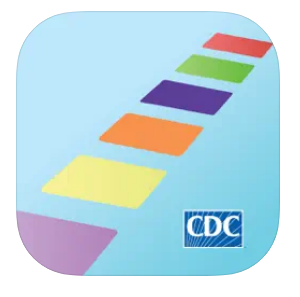
Centers for Disease Control and Prevention Milestones
CDC’s milestone checklist provides parents and caregivers with an overview of the developmental milestones children are expected to reach from birth to five years old. Because babies develop so rapidly, there are checklists for every few months (i.e. 2 months, 4 months, 6 months, etc.). The list for each age is broken down into social/emotional, language/communication/ cognitive, and movement/physical development milestones. By keeping track of how your baby’s development compares to these CDC milestone checklists, you can have important conversations with your child’s pediatrician if you have any concerns about their development. Your child’s doctor will be able to refer you to early intervention specialists as needed. CDC also offers an app, called Milestone Tracker which offers interactive checklists where parents can check off milestones as they are achieved, and keep notes they plan to use with their child’s pediatrician.
Infant Safety
Infant Choking: How to Help (American Red Cross)
This site offers care givers of infants a brief overview of the warning signs of choking, as well as the steps one should take in response. In addition to a written list of the step by step procedures for offering aid to a choking infant, the page also includes a video demonstration of the different methods caregivers can use to assist a choking baby. The site also includes information about how caregivers can sign up for a full length in-person or online class covering topics such as First Aid, CPR, and AED use when assisting a baby.
Childproofing Your Home – United States Consumer Product Safety Commission
This guide helps caregivers to identify the potential hazards in their homes, and guidelines on practices and products that can be used to reduce risk. The website includes a PDF containing information on proper use of safety gates, carbon monoxide and smoke alarms, door knob covers, furniture anchors, and more. The page also includes links to additional resources which provide step by step instructions for different babyproofing procedures, making it possible to put these safety measures in place even without any previous home improvement experience. This site also contains a space where you can look up recall information on consumer products, including how to remedy any potential risks presented by products.
Infant Care and Health Resources – National Institute of Child Health and Human Development
The National Institute of Child Health and Human Development has compiled a comprehensive list of infant safety resources on a wide variety of topics including car seat safety, safe sleep practices, vaccinations, SIDS risk reduction, and more. The list contains links to resources from different reputable organizations using evidence-based research to inform their guidelines. The information on the site is available in both English and Spanish.
Immunization Information
Immunization Resources for Families – American Academy of Pediatrics
On this page, the American Academy of Pediatrics has compiled information about immunization recommendations, the standard immunization schedule, and helping to manage your child’s pain during immunizations. The page also contains a link to a collection of immunization studies, so you can feel empowered to examine the available evidence as you make decisions about your children’s health.
Childhood Vaccines: Tough Questions, Straight Answers, CDC (2023)
In this article, staff at the Mayo Clinic have tackled some of the most common questions new parents ask when weighing their options related to vaccinating their children. The article provides insights on natural immunity vs. immunity from vaccines, research disproving the link between vaccination and the development of autism, and vaccine side effects. The article also contains a link to the Mayo Clinic’s comprehensive vaccine guidance, which provides information about vaccine benefits, allergic reactions, vaccines during pregnancy, and more.
Parents’ Questions About Vaccinations: Answered by Our Expert, UNICEF (2019)
In this video, Diane Summers, member of the Immunization Team at UNICEF Headquarters, addresses some of parents’ most common questions about vaccinations. In her responses, Summers covers things like how vaccines work, claims about links between vaccines and autism, vaccine side effects, vaccine ingredients, vaccine schedules, and more.
Local Resources

Mechanicville Area Community Services Center (MACSC)
The Mechanicville Area Community Services Center aims to “improve the lives of area residents through family support, empowerment, recreation and education.” The page linked above contains a list of community resources compiled by MACSC. These resources provide services related to child care, food insecurity, information about local parks and recreation opportunities, and more.
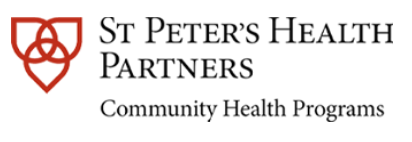
St. Peter’s Health Partners’ Baby Café
St. Peter’s Health Partners offers a community program called Baby Café. These events are hosted in-person at different locations throughout the capital region, including right here at the Mechanicville Public Library, 11am-1pm on the 2nd Tuesday of each month. These events are open to pregnant and breastfeeding families and offer support from trained staff, the opportunity to connect with other parents and caregivers in the community, and comfortable space to ask questions and discuss your feeding experience. Details can be found at the link above, and you can also follow the Baby Café on Facebook or Instagram.
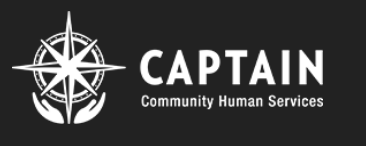
Captain Community Human Services
Captain CHS provides robust programming and multiple forms of support to all Saratoga County residents. Resources include an emergency food and hygiene pantry, housing assistance, access to free meals for children, and support for families and youth. You can view a list of the organization’s support resources on their website, or call them at (518) 371-1185 if you are unsure of the specific type of support you need.
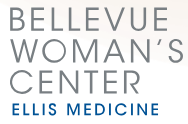
Maternity Classes and Support Groups at Bellevue Woman’s Center, Ellis Medicine
Bellevue Woman’s Center, located in Niskayuna, offers maternity classes and support groups for local parents and families, regardless of whether or not your child will be delivered at the facility. The classes are designed to be taken prior to the arrival of your baby, and cover topics such as an overview of infant care, breastfeeding, infant safety and CPR, and childbirth preparation. Classes are offered both in-person and virtually throughout the year.
